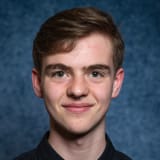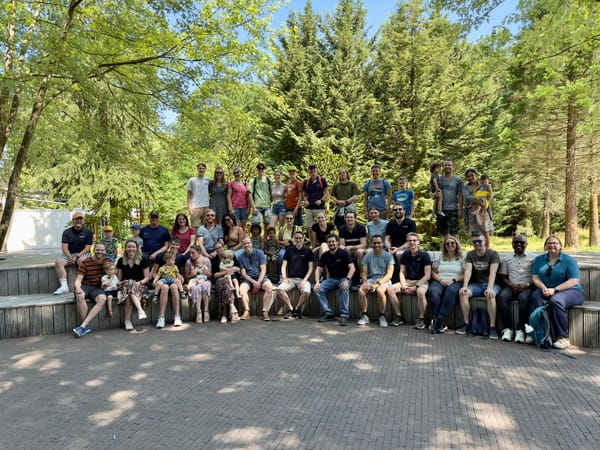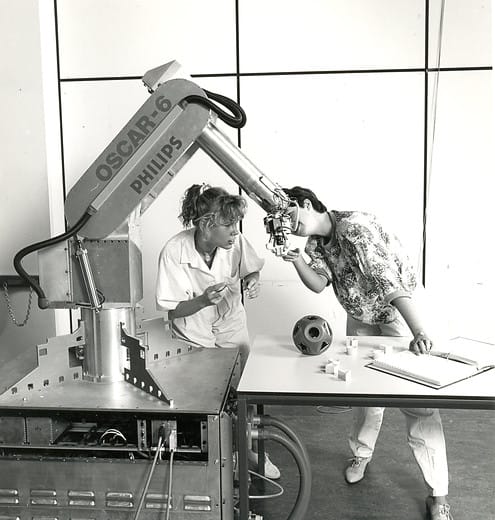A new age of Technical Computer Science
Before the introduction of Numerus Fixus, I discussed with program director Vadim Zaytsev what the change would look like. This article is a retrospective analysis of that discussion.

Do you remember applying to Technical Computer Science? If you do not, it is probably because there is not much to remember. Some mouse clicks and on the first of September, you were officially a computer science student. Last year, students had to put in some more effort. Why? Because Numerus Fixus has (after much effort of the faculty) been introduced to the bachelor in Twente.
The change has caused a slight disruption in the balance of the settled world of Technical Computer Science. While Technical Computer Science in Eindhoven and Delft, and Computing Science in Groningen already had a selection, Twente was still an open program. Students who enter those selection processes used to use Twente as their backup, but this is not the case anymore. Before the introduction of Numerus Fixus, I discussed with program director Vadim Zaytsev what the change would look like. This article is a retrospective analysis of that discussion.
The idea of introducing Numerus Fixus was not revolutionary. Computer science is a notoriously growing field and the number of applications reflects this growth. In 2021–2022, the last year before the introduction of Numerus Fixus, 418 students started on the first of September. Much was done to support the growth, “but there is still a limit on how much you can grow without sacrificing quality and without sacrificing the personal touch.” according to Vadim. This was the main reason to introduce a limit on the number of new students, together with the fact that it is preferred that Twente is somewhat in sync with Eindhoven and Delft. In retrospect, only 380 out of the 485 at the entrance examination accepted their invitation to the program.
To understand the Numerus Fixus, it is important to know what it actually consists of. A motivation questionnaire meant to filter out the unmotivated students is the first part of the process for new students. The next step for them to take is the actual test, consisting of three components: logical thinking, mathematical thinking, and algorithmic thinking. For the last one, it is important to note that it will not contain any actual programming questions. The university is interested in the students with the highest potential, not with the most experience. The students with the - in the eyes of the university - highest potential can then claim their place.
To construct the test, Twente peeked over at Eindhoven and Delft. In general, a lot of decisions were made by consulting other universities, also including Groningen. Still, much thought was put into how new students actually should be ranked. Maybe you noticed that school grades are not included in the ranking. No evidence supports the fact that high grades make good students, Vadim explains. Moreover, grades are differently valued in different countries. It was thus decided to rank only on test results.
The results of the first implementation of the Numerus Fixus were satisfactory, according to a member of the TCS Programming Committee. A complete website, transparency about the process, and a shared email inbox used by the candidates were the aspects that went well in the communication. For examination, proctoring was not able to be implemented, but the questions were unsolvable by using search or answer engines. The split-up between an on-campus and online examination were also deemed okay. All in all, the next Numerus Fixus will not undergo any major changes next year.
So Numerus Fixus is here and we have witnessed the introduction of a new age of computer science in Twente. The process will most likely be dynamic for the next few years. “Maybe we will grow to 500, 600, or even 1000 students,” according to Vadim. For upcoming students, Vadim can assure you of one thing though: do not worry. An entry exam may seem like a big deal, but he ensures that it is not. The selection process is not there to make life difficult but to keep that beloved personal feel. Ironically, to conserve the beliefs of Technical Computer Science, its very core needs to be changed. And beware, this change will probably not be the last.
Starting September 2022, the study Technical Computer Science at the University of Twente has a numerus fixus. To find out more our new editor Xanti Lizanzu researched the implementation of the new admission requirement and talked to the programme director to hear his views on this change for the programme.





